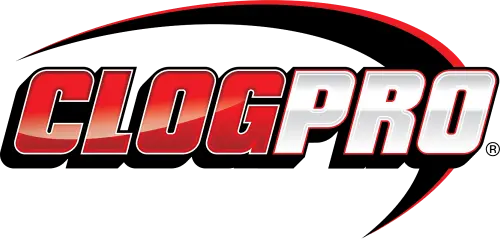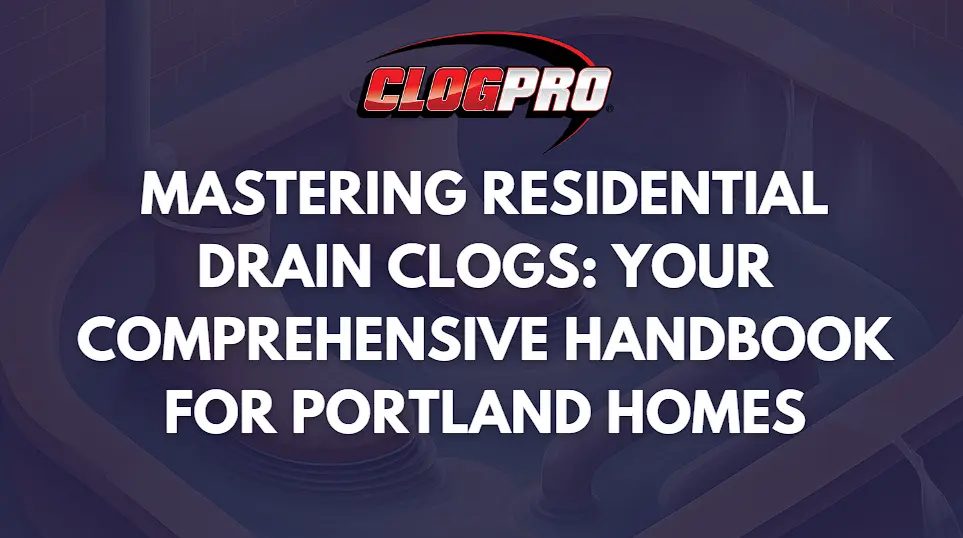Understanding and managing residential drain clogs is crucial when it comes to maintaining a smooth-running home in Portland. Portland’s distinctive seasons and beautiful but often intrusive natural surroundings can contribute to plumbing issues, particularly drain clogs that can strike homes from historic districts to modern apartments. Clog Pro Plumbing & Drain offers this essential handbook tailored specifically for Portland residents. Here, you’ll find expert advice on preventing common clogs, quick fixes for when troubles arise, and professional insights on when to call in the experts from Clog Pro. Whether you’re battling fallen leaves in autumn or the rainy season’s challenges, this guide will help keep your home’s plumbing in peak condition.
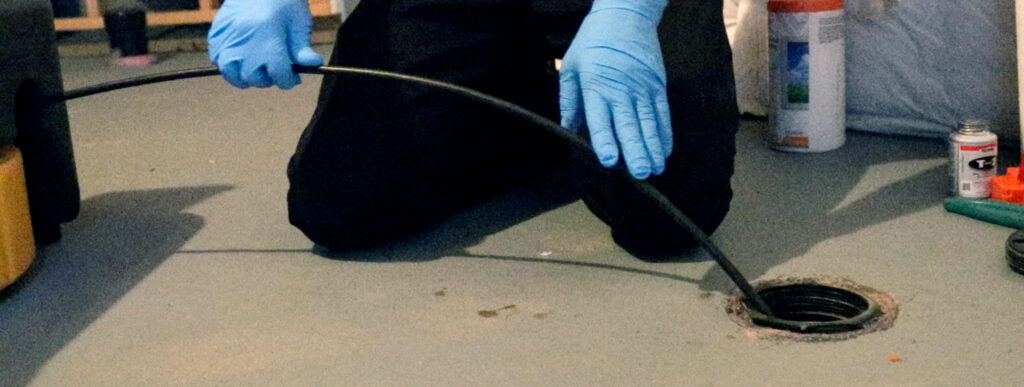
With a wealth of experience navigating the unique plumbing challenges of the Portland area, Clog Pro Plumbing & Drain ensures that every homeowner is equipped not just to react to clogs but to understand them. This handbook delves into the most common residential clogs, from hair and grease buildups to invasive tree roots, which are particularly problematic in our tree-lined city. By understanding the signs and sources of these issues, Portland residents can implement routine practices that keep their drains flowing freely. More than just solving problems as they arise, this guide empowers you with preventative strategies, detailed maintenance tips, and the confidence to handle minor issues before they escalate into major concerns.
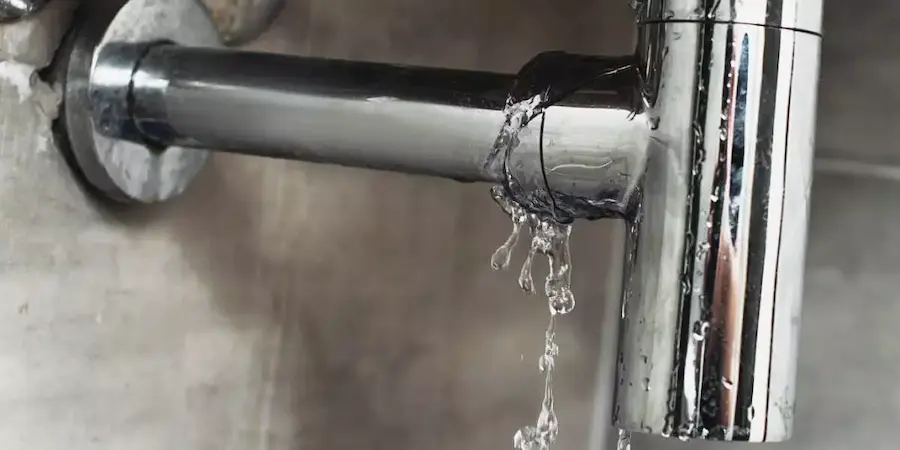
Cause: Clogs from Hair and Soap
Hair and soap combine in your bathroom drains, particularly in showers and bathtubs. As hair sheds naturally during washing, it can intertwine with soap residue. This mixture sticks to the sides of drain pipes, creating a mass that traps more debris over time, leading to clogs.
Resolving Hair and Soap Clogs:
- Immediate Actions: Use a plunger to try to clear the clog. A drain snake or wire hanger can manually remove the blockage if unsuccessful.
- If the Problem Persists, Consider a professional drain cleaning service. These services may use more advanced tools, such as motorized drain augers or hydro-jetting, to clear the blockage effectively.
Steps to Prevent Hair and Soap Clogs:
- Install a drain guard in showers and bathtubs to catch hair before it enters the drain.
- Switch to liquid soap that is less likely to form scum, or use soap-free body washes.
- Clean the drain cover regularly, and use boiling water mixed with baking soda and vinegar to dissolve any buildup inside the drain.
- From Plate to Pipe: The Journey of Food Waste into Plumbing Problems
Cause: Food Waste Clogs
Kitchen sinks often become the unwitting recipients of food scraps, which can lead to significant plumbing issues. When food waste is washed down the drain, it can accumulate and harden within the plumbing, particularly when mixed with grease or oil, creating stubborn clogs that impede water flow.
Resolving Food Waste Clogs:
A biochemical drain cleaner, which uses enzymes to break down organic matter without damaging pipes, can be used. For severe clogs, professional plumbing services may be necessary to remove the blockage with more advanced techniques such as hydrojetting.
Steps to Prevent Food Waste Clogs:
- Always scrape plates thoroughly into a compost bin or trash can before washing them in the sink.
- Use sink strainers to catch food particles and clean them out regularly.
- Avoid disposing of grease, coffee grounds, eggshells, and other fibrous or starchy substances down the drain, as these can exacerbate clog formation.
Cause: Clogs from Foreign Objects
Items that inadvertently fall into drains, such as toys, jewelry, or small household items, can cause significant blockages in residential plumbing systems. These objects do not dissolve or break down, forming an impassable barrier that disrupts water flow.
Resolving Foreign Object Clogs:
- Immediate Actions: Use a wet/dry vacuum to suck out the object if it is close to the drain opening. A plunger might help if the object is small and pliable.
- If the Problem Persists, A drain snake may be necessary to dislodge the object. For deeper clogs or sensitive plumbing, professional help may be required to remove the object without damaging the pipes.
Steps to Prevent Foreign Object Clogs:
- Install drain covers on all drains to catch small items before they enter the plumbing.
- Educate all household members, especially children, about the dangers of dropping objects down the drain.
- Keep small items away from bathroom counters and kitchen sinks to prevent accidental falls into the drain.
Cause: Tree Root Intrusions
Tree roots naturally seek moisture and can infiltrate sewer lines through tiny cracks or loose joints. Once inside, they grow and expand, blocking the flow of water and waste, which can lead to significant plumbing issues and even pipe ruptures.
Resolving Tree Root Clogs:
- Immediate Actions: If minor symptoms like slow drains or gurgling sounds are noticed, a root killer can be applied, which helps to decompose the roots without harming the tree.
- If the Problem persists, more substantial root intrusions require mechanical removal with a plumber’s snake equipped with cutting blades or hydro jetting. In severe cases, pipe repair or replacement might be necessary, often involving trenchless technology to minimize yard disruption.
Steps to Prevent Tree Root Clogs:
- Avoid planting trees and large shrubs near sewer lines. If planted, consider root barriers that redirect root growth away from pipes.
- Regular inspections of sewer lines with a camera can help detect early intrusions before they become severe. This proactive measure allows for timely interventions and avoids costly repairs.
- Manage tree and shrub growth around your home to reduce the risk of roots reaching your pipes.
Cause: Toilet Paper Clogs
Excessive toilet paper use is a prevalent issue leading to residential plumbing clogs. Large amounts of toilet paper can accumulate in the pipes, particularly in homes with older, narrower plumbing systems, forming blockages that impede water flow and can cause backups.
Resolving Toilet Paper Clogs:
- Immediate Actions: Using a plunger can often clear the blockage for simple clogs. Plunge vigorously but carefully to avoid splashing or damaging the toilet.
- If the Problem Persists: A toilet auger, also known as a closet auger, can reach deeper into the toilet than a plunger. It is designed to navigate the bends of the toilet trap and remove clogs without damaging the toilet or the plumbing.
Steps to Prevent Toilet Paper Clogs:
- Educate all household members on the appropriate amount of toilet paper to use. Installing dispensers that limit the amount dispensed per pull can also help manage usage.
- Consider switching to thinner, rapidly dissolving toilet paper, especially if your home has an older plumbing system or is connected to a septic system.
- Regular maintenance checks and occasional professional inspections can ensure that your plumbing remains clear and functional, preventing minor issues from becoming major blockages.
Cause: Cosmetic Buildup
Residues from beauty products such as creams, lotions, and makeup can accumulate in bathroom sinks and showers. These products often contain oils and waxes that adhere to pipe walls, trapping hair and other debris, leading to clogs.
Resolving Cosmetic Clogs:
- Immediate Actions: Use hot water periodically to flush out oily residues. A mixture of baking soda and vinegar for tougher clogs can help break down the buildup.
- If the Problem Persists: Using a plunger or a drain snake can help physically remove clogs caused by thicker accumulations of cosmetic products. For recurrent issues, a professional drain cleaning may be necessary.
Steps to Prevent Cosmetic Clogs:
- Wipe off excess lotions and makeup from hands or beauty tools with a paper towel before washing them off under the sink.
- Regularly clean drain stoppers and apply drain covers to catch residues.
- Use less viscous beauty products or those labeled as “septic-safe” or “plumbing-friendly.”
Cause: Paint and Chemical Buildup
Disposing of paints, solvents, and various household chemicals in sinks or toilets can lead to severe clogs and potential damage to plumbing systems. These substances can solidify or react chemically within the pipes, obstructing flow and causing deterioration.
Resolving Paint and Chemical Clogs:
- Immediate Actions: If paint or chemicals accidentally spilled into a drain, flush immediately with plenty of water. Note that this may only dilute, not resolve, significant clogs.
- If the Problem Persists, It is crucial to call a professional plumber to assess and address the damage safely, as chemicals may require specialized handling.
Steps to Prevent Paint and Chemical Clogs:
- Never dispose of paints, solvents, or chemicals down the drain. Instead, use appropriate hazardous waste disposal methods as per local regulations.
- Educate all household members about the risks of improper disposal.
- Store chemicals properly and away from potential spill zones near drains.
Cause: Starch Residues from Pasta and Rice
When pasta and rice are washed down the drain, they absorb water and swell, leading to significant blockages in kitchen plumbing. These starchy foods also become sticky as they cook and cool, adhering to the inside of pipes and gradually accumulating other debris.
Resolving Starch Clogs:
- Immediate Actions: If you suspect a starch blockage, flush the drain with plenty of hot water to try and dissolve the clog. A mixture of vinegar and hot water might help break down the residue for smaller clogs.
- If the Problem Persists, Employing a kitchen sink plunger or a drain snake can be effective. In cases where these methods do not resolve the issue, a professional plumber may use hydrojetting to clear the pipes.
Steps to Prevent Starch Clogs:
- Never dispose of leftover pasta or rice down the drain. Instead, throw it in the trash or a compost bin.
- Use sink strainers to catch any accidental slips during dishwashing.
- Regularly clean your drains with boiling water to prevent any buildup from solidifying.
Cause: Eggshell Fragments
Eggshells can cause plumbing issues when they are ground up by garbage disposals and sent down drains. Their granular nature allows them to catch and bind with other waste, forming solid masses that are difficult to dislodge.
Resolving Eggshell Clogs:
- Immediate Actions: A plunger might initially help shift the clog slightly, but a drain snake is advisable to remove the accumulation physically for more stubborn blockages.
- If the Problem Persists, Professional intervention may be required. Plumbers might use advanced techniques like hydrojetting to clear the pipes completely.
Steps to Prevent Eggshell Clogs:
- Always dispose of eggshells in the trash or compost them rather than rinsing them down the drain.
- Educate everyone in the household about the potential plumbing hazards of eggshells.
- If you must dispose of eggshells in the sink, consider installing a more robust garbage disposal unit to handle them more effectively.
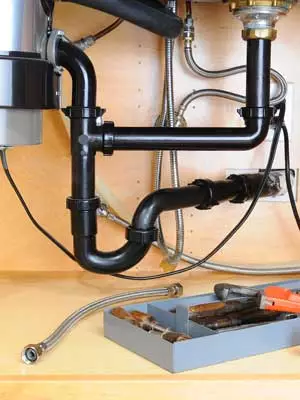
Hard Water Havoc: The Impact on Your Pipes
Cause: Mineral Buildup from Hard Water
Hard water contains high levels of minerals like calcium and magnesium, which can deposit on the insides of pipes, reducing water flow and increasing pressure. Over time, these deposits can solidify into a scale that is tough to remove, leading to efficiency losses and potential pipe damage.
Resolving Mineral Buildup:
- Immediate Actions: Regularly flush pipes with a vinegar solution to help dissolve minor mineral buildup.
- If the Problem Persists: For severe scaling, a professional plumber might need to perform descaling with specialized chemicals or tools like hydrojetting to restore pipe diameter and flow.
Steps to Prevent Mineral Buildup:
- Install a water softener system to treat hard water before it enters your home’s plumbing.
- Periodically clean faucets and showerheads to remove external signs of mineral buildup.
- Consider regular plumbing assessments to check for and address any signs of hard water damage before severe problems develop.
Pet Hair: Unseen Clogging Culprits in Your Drains
Cause: Accumulation of Pet Hair
Pet hair can accumulate in drains like human hair, especially from bath time. Pet hair tends to bind with grease and other sticky substances in the pipes, forming dense blockages that disrupt normal water flow.
Resolving Pet Hair Clogs:
- Immediate Actions: Use a wet/dry vacuum to remove hair from the surface of the drain. A plunger or manually operated drain snake can be effective for clogs within the drain.
- If the Problem Persists, Professional plumbers may use motorized drain snakes or hydrojetting to thoroughly clear hair clogs.
Steps to Prevent Pet Hair Clogs:
- Use drain guards or strainers during pet baths to catch hair before it enters the drain.
- Regularly clean and check the drains for accumulation of pet hair and clear them out.
- Bathe pets outside or in a tub where hair can be controlled and disposed of separately rather than allowing it to enter the plumbing system.

Why choose Clog Pro Plumbing & Drain for Residential Drain Clogs?
Experienced Professionals: Clog Pro Plumbing & Drain boasts highly skilled and experienced plumbers who are well-versed in handling all types of residential drain issues, ensuring that every job is completed efficiently and effectively.
Advanced Technology: Utilizing state-of-the-art equipment and techniques, such as video inspection tools and hydro-jetting, Clog Pro provides superior service beyond fixing the immediate Problem by ensuring the entire system functions optimally.
Comprehensive Services: From simple clogs to complex sewer issues, Clog Pro Plumbing & Drain offers a wide range of services that cover all aspects of plumbing and drain maintenance, making them a one-stop shop for all your plumbing needs.
Preventative Maintenance: Recognizing the importance of prevention, Clog Pro also offers regular maintenance services to help prevent clogs before they start, saving homeowners time and money in the long run.
Emergency Services: Clog Pro understands that clogs and plumbing issues can occur at the most inconvenient times, so they offer emergency services to promptly address urgent problems and prevent further damage or inconvenience.
Customer Satisfaction: With a strong commitment to customer satisfaction, Clog Pro Plumbing & Drain ensures that all clients are fully satisfied with their services, offering follow-ups and guarantees on their work.
Local Expertise: As a local business, Clog Pro is familiar with common issues affecting the area, allowing them to provide tailored solutions for Portland homeowners’ specific challenges.
Dealing with Stubborn Drain Issues? Contact Us Now for Reliable Solutions!
Are recurring drain problems interrupting your home routine? Clog Pro Plumbing & Drain offers more than quick fixes; we provide lasting peace of mind. When you choose our services, you’re not just clearing a clog; you’re enhancing your home’s efficiency and your quality of life. We understand the stress that plumbing issues can cause, so we are committed to delivering prompt, effective, and thorough services that ensure your home functions smoothly without frequent disruptions. Trust us to take care of your plumbing needs so you can enjoy a stress-free home environment.
